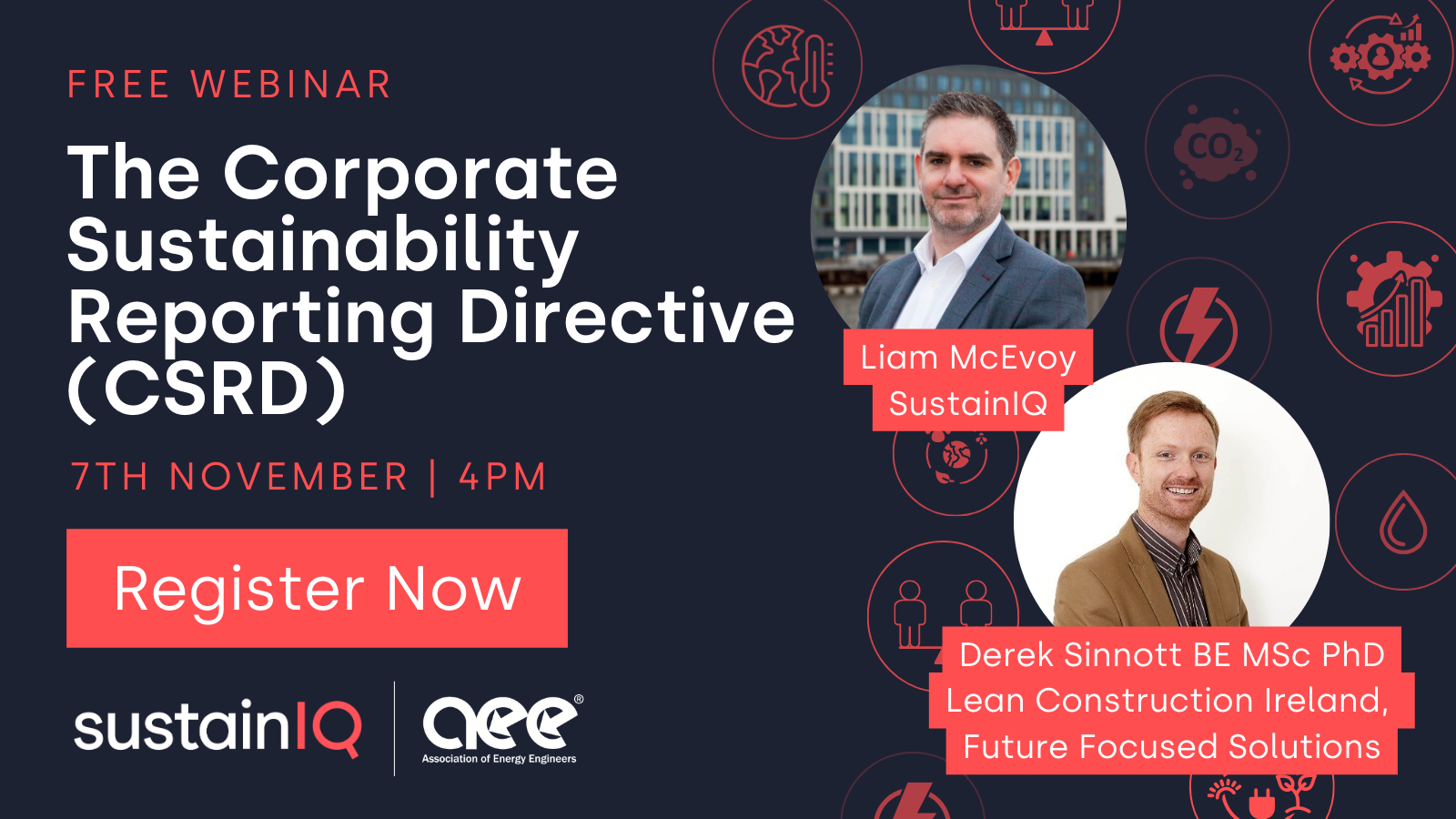Nov 21, 2022 | Conal Love

The European Commission voted on the 10th November 2022 to accept the Corporate Sustainability Reporting Directive (CSRD), requiring large organisations that exist or operate within the EU to publicly report and disclose on their environmental & societal impacts.
Accepting the CSRD will now make the EU a global leader in sustainability reporting, and effectively end greenwashing in the EU, setting standards on a global-platform for reporting expectations.
What is the CSRD however? And will it affect your business moving forward?
What is the Corporate Sustainability Reporting Directive (CSRD)?
The CSRD was first proposed in June 2020, and with the acceptance of the legislation, 50,000 organisations EU-wide will now be required to report and disclose their impacts, up from a previous 11,700.
Attempting to resolve shortcomings of non-financial related disclosures (NFRD), the CSRD introduces more detailed reporting requirements on companies’ impact on the environment, human rights and social standards, based on common criteria in line with EU’s climate goals. The first standards will be adopted by the Commission in June 2023.
Does my organisations need to comply?
Not all businesses will be required to disclose under the CSRD.
However, if your organisation is a large business either headquartered within the EU, or operating significantly in EU regions, you may be required to report and disclose, as well as face independent audits of your environmental & societal impacts.
You will need to comply if:
- You are a large EU based company, whether listed on stock markets or not
- Non-EU companies with over 150m turnover in the EU
- Listed SMEs thereafter regardless of size
When do I have to start reporting?
The rules will be adopted on the 28th November 2022, with the directive entering in to force 20 days later.
You still have time if you have not yet started reporting, although the clock is on to get procedures in place and find a methodology - fast.
You'll want to be aware of the following timescales:
- From 1 January 2024 for large public-interest companies (with over 500 employees) already subject to the non-financial reporting directive, with reports due in 2025;
- From 1 January 2025 for large companies that are not presently subject to the non-financial reporting directive (with more than 250 employees and/or €40 million in turnover and/or €20 million in total assets), with reports due in 2026;
- From 1 January 2026 for listed SMEs and other undertakings, with reports due in 2027. SMEs can opt-out until 2028.
How can I get started?
Not sure how to get started with sustainability & ESG reporting? We recently developed a 6 step guide to getting started, which you can download here.
If you need a quick solution, why not have a quick no-commitment chat with our team to see how we can help.
SustainIQ is the all-in-one sustainability & ESG reporting software that can help EU businesses report on their environmental, societal and economic impacts in real-time across all business locations. Reach out to us to get started, or drop an e-mail to [email protected] to arrange a call.

